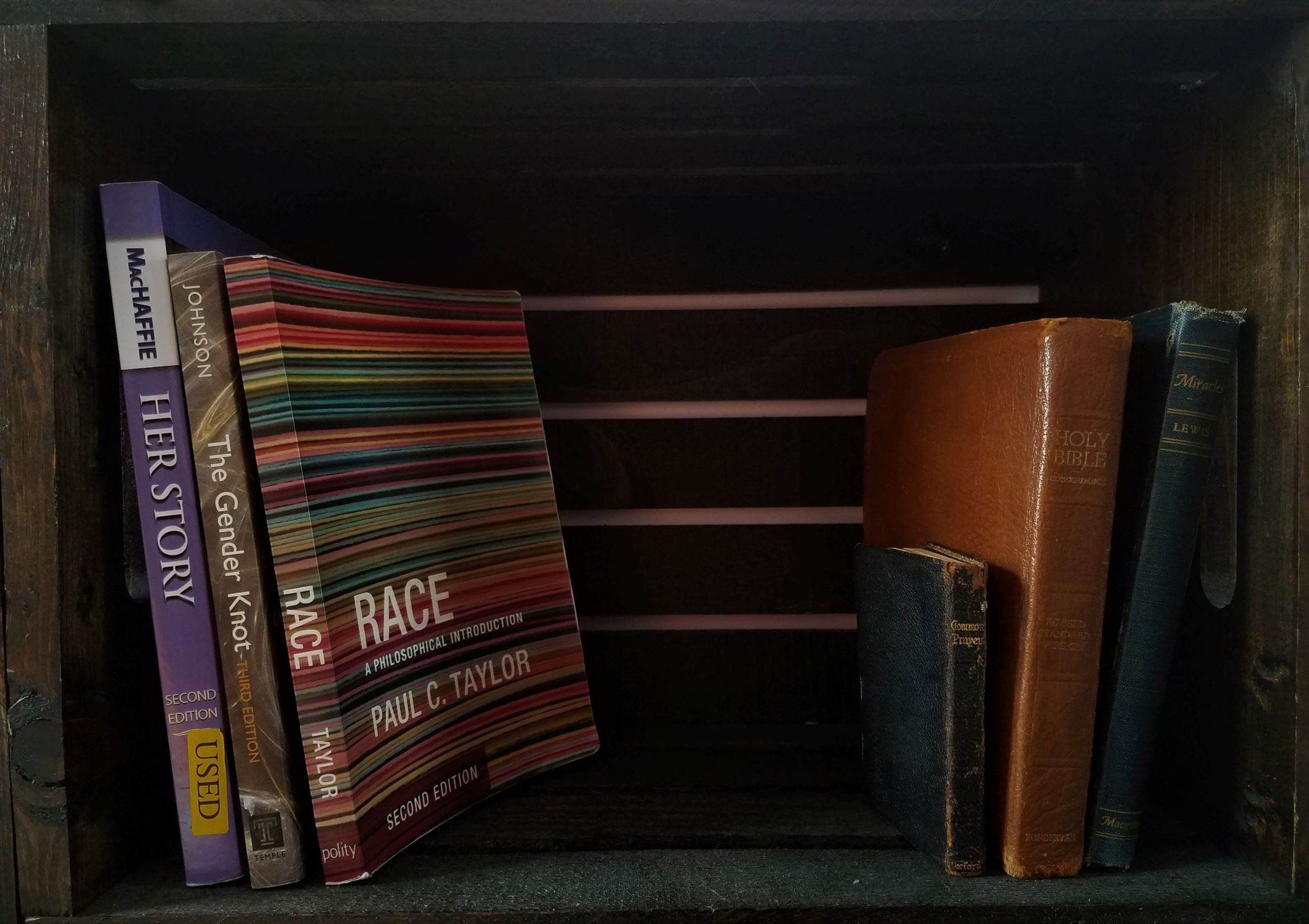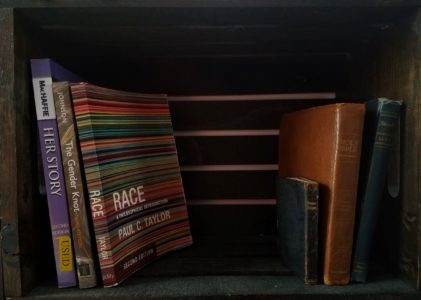When I was growing up I most certainly heard the phrase “count your blessings” from time to time, particularly at church. I’ll admit to never having liked the phrase. It seemed to suggest to me that God granted certain things to certain people and just failed to, or didn’t care to give them to other people. Now this is one thing if you are expected as a child to be grateful for mere toys and fun vacations, but that was never the implication. Instead, I was left wondering why I was supposed to pretend that the realities I had of clean water, having good healthcare, or having enough food were things that I was somehow “blessed” with, when someone else wasn’t. Maybe I just didn’t want to be thankful, but honestly, it just seemed cruel. They didn’t strike me as blessings from God so much as the neutral luck (neither good nor bad) of being born into random circumstances. Now maybe I didn’t exactly phrase it all like this in my head when I was younger, but I think you get the gist of the doubts I had as a child.
So then, what do I do with this phrase now? well I must say that this phrase reminds me a lot of the similar: “check your privilege.” Both of these phrases are commands as they demand the listener to do something, and it’s something very similar. To boil things down, these phrases ask the listener to consider the goodness and advantages in their life that they haven’t considered before, which correlates with the acknowledgement that there is someone out there who has not had the same in their experience of life. The particulars can vary, as those who use blessings vs privileges might be talking about different things, like having family, or being born in the United States vs maybe discussion on race and sex or gender. I don’t want to over-simplify, but I think it’s fair to say that these phrases come from maybe a more religious vs a more academic perspective, respectively, and may also be divided along conservative or liberal political lines as well. With potentially very different groups espousing very similar ideas in different language, why then does it feel like this broader conversation does not happen?
I want to take a detour for a minute to say that not only did I find myself frustrated with “count your blessings” as a child, but I also struggle with the phrase “check your privilege.” I always felt like this phrase was told in a very self-righteous way. I felt as if it made assumptions about me and my experience, assumptions about what was easy for me and difficult for me, without actually ever asking if those things felt true. It seemed as if I was supposed to feel like a victim for being a woman, but that I was supposed to feel like my whiteness had given me such an advantage in life, while maybe at the same time experiencing some oppression for being hispanic? As much as I might have seen people posting online, or putting phrases like that on posters, in all reality, I never once was asked, “hey, what kind of struggles do you feel are particular to your experience that other people don’t have to deal with?” Instead, we continually demand of people that they only focus on how great or bad they must have it, which overlooks the realities of people’s experiences and the real connection and growth that can happen when we ask someone to tell their story. The reality of social change and fostering better connections necessitates that people open themselves up to difficult feelings and situations. If you want the world to change with the snap of your fingers or one simple post online, you are sorely mistaken. People do not change because you order them to be grateful. People change in relationship. People change through being moved by another’s testimony. People are moved by people who are willing to do the laborious task of trying to move them, as opposed to telling them that they should already know better. I’m not saying that people need to be changing hearts and minds every second of the day, but neglecting the very real impact of engaging personally with someone, is a great loss.
I grew up in a way that led me to not affirm people who are LGBT. I didn’t know much, but the people around me weren’t affirming, so I was not. Then, in high school, unbeknownst to me, the group of friends I ended up in all eventually came into their identities, leaving me at times, to be the token straight if certain people didn’t happen to make it to a gathering. It wasn’t someone telling me to check my privilege, to count my blessings, or to stop being such a bigot. It was friendship with people that cared about me, and I cared about, that led me to learning and accepting who they were and the struggles they dealt with. It is this experience that makes me so disheartened by those who truly think that talking at people, or making demands of them, is the proper approach.
Coming back to the question of why don’t more people engage in this broader conversation about the advantages in life, whether we call them blessings or privilege, is of a similar issue. Demands like these, whether they come from the church or academia, the right or the left, are from a place of arrogance and a lack of vulnerability. It takes one thing to tell someone to consider how good they have it in life, that thing is sass and maybe some resentment as well. It takes another, to let someone know how they have been hurt by the world in a particular way, that thing is courage. Courage can be a lot to ask of someone, but that doesn’t mean it is the wrong thing to expect. What’s wrong is to ask someone to be courageous, and not do it yourself. It’s wrong to tell someone to check their privilege, without considering what their experience actually is like. It’s wrong to tell someone to count their blessings, when you aren’t willing to sit with them in their pain. I don’t say all of this to pretend like there isn’t value in thanking God, or keeping a gratitude list, or some other version of mindfulness about the good in life. I say all of this, because I fear that people so desperately want to avoid the conflict, avoid the pain, avoid the realness of it all, thinking avoidance will produce personal or social change. Not only that, they feel morally justified, socially righteous, or more spiritual for doing so. That they are casting off demands on their “emotional labor” or that they are more faithful to God, or more spiritual for not getting caught up in understanding people with problems and concerns they deem trivial, or unworthy of compassion.
I say this having made some of these mistakes myself, and I don’t know what exactly the best way forward looks like. I think a lot of people are crying out to be heard, even if on the surface they say that they don’t want to. I think even the people we see as the other, the enemy, the privileged, or the blessed, are also crying out. All I can truly say, is that maybe we need to first, find people who will truly listen when we request that they do. After that, walk out in strength to be the one who cares and listens, even if it means being the bigger person, or that we “shouldn’t have to.” We shouldn’t have to do anything to make the world more just, we didn’t ask for these problems and we certainly didn’t create all of them, but maybe it’s best if we decide to anyways.
And maybe now and again we should reflect on the good we have in our lives, and the problems as well, but not just along one rigid ideological framework. I guess to keep true to my statement that I shouldn’t just make demands, I’ll say a few things myself:
I’m blessed to have been born in the United States, as I know that some people do not have the rights and freedoms that I do being born elsewhere.
I’m privileged to be born middle class, as I know that poverty radically affects the brain, and takes a psychological and physical toll.
I’m advantaged for living in the 21st century, because women in the past fared far worse, even if there is still work to be done.
I’m thankful that whatever prejudice my parents were treated with in the hospital for my dad’s accent, didn’t leave me disabled in any way, knowing that some experience similar prejudice and have far worse outcomes for themselves or their children.
I’m grateful for having mentors that care about me, because I know that I’m not the only one to struggle with a relationship to a parent. I know that for some kids, not having enough support in their lives means they end up addicted to drugs or in prison.
I’m lucky for having a lot of things come naturally to me, and even if I know I still work hard, that some people have to work far harder to achieve the same.
I’m fortunate for having this day, for having a merciful God, and YouTube.
And I’m glad for someone like you who thinks my thoughts are worth reading. I hope you have someone like that too.

